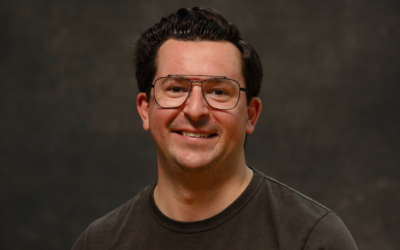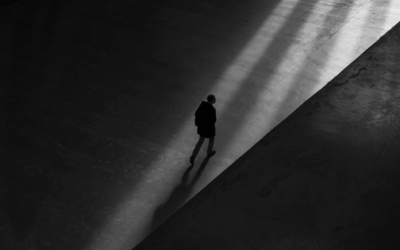There are only a few photographers that are as exciting as Jeff Cable. Jeff has brought us immersive visuals, rich colors, and astounding stories from the last seven Olympic games, including the 2018 Winter Olympics in Pyeongchang and the 2020 Summer Olympics in Tokyo. At the same time, his extraordinary technical skill and down-to-earth attitude have made him one of the most-watched and respected photography instructors, with millions of viewers of his free online classes. All that, after just accidentally stumbling on photography back in 2004.
Jeff has been the official photographer of Team USA and the US Olympic Committee since the 2008 Summer Olympic Games in Beijing. From the joy and happiness of winning to the anger and sorrow of defeat, Jeff has an incredible knack for wringing out strong emotions from the theater of sport. His visuals often reflect the athlete’s inner turmoil and allow viewers to build deep connections with the characters.
We spoke with Jeff about how he fell in love with photography, why he’s interested in telling athletes’ stories, and how he gets his images to be so perfect.
“A friend of a friend asked me to photograph an event. I said no. I didn’t want to ruin it for them.” – Jeff Cable.
What attracted you to photography?
I got into photography by accident. I bought myself a little point-and-shoot digital camera when these first came out. Even though I didn’t understand how to control it or get the look I was after and shot using automatic mode like every beginner, I immediately fell in love with taking pictures. Sometime later, a friend of a friend asked me to photograph an event for them. I said no because I was afraid to ruin it for them. But somehow, they managed to convince me to do it, and everything just kind of snowballed from there.
So it literally started as a passion. And it’s continued as a passion all the way through. I enjoy everything about photography. I’m one of those crazy people who shoots everything from wildlife to sports, from Bar Mitzvahs to weddings. Whether I’m doing a senior portrait or shooting pictures of Michael Phelps, I approach it with the same level of passion. I love creating art and capturing history, whether it’s personal history, political history, or sports history.
With all that love and passion you put into every project, do you have a favorite one you’ve worked on?
I’ve worked on a lot of amazing projects. I’m really lucky. I pinch myself all the time. I remember the first time I shot at the Olympics. Back then, I saw it as a once-in-a-lifetime opportunity. I was very excited. Now that I’ve done seven of them, the excitement has only grown. Every time I arrive at the Olympics, I say gosh, I can’t believe I’m here and get to do this. The opportunity to travel the world and the chance to get to know the best athletes in the world is really incredible.
Thousands of athletes from around the globe, the beauty of physical prowess, and undeniable Olympic spirit tying viewers together across time and space. What’s it like to be there? What’s it like to shoot the Olympics? Can you talk about your process?
My process of shooting the Olympics is pretty crazed. That’s the best way to put it. When I first photographed the Olympics, my deadlines used to be half a day, 12-hours or so. For the next Olympics, deadlines shrank to four hours, the Olympics after that to two hours, and for the last three Olympics, with social media and everything, my deadlines have been 14 minutes. That’s the time break between periods in hockey. If, for example, they want to say the US is up over Russia, two to one, tune in to see the second period – they really need images right away.
So the process is pretty straightforward. You shoot the best you can, using the best camera and the fastest memory cards. You then plug the card into the fastest reader and download images into the fastest computer, where you quickly go through the photos, find the best ones, do a quick retouch, resize and send them back to the US. All that within 14 minutes. Only to start it all over again the moment later.
So, what is your go-to camera and a memory card? What equipment do you recommend for someone who fights time?
My camera must be super-fast! The same goes for the memory card!
Right now, I’m using the Canon R3. I used it for the first time at the Tokyo Olympics back when it was a prototype, and it’s been my go-to camera since. This camera is awesome. It shoots up to 30 frames per second, which is kind of astounding when you think about it. That’s just so many images. But that also means that my memory card has to be fast enough for me to shoot that many frames and not fill the buffer. So having a memory card you can rely on is also really critical. That’s why I use ProGrade Digital memory cards. Specifically, ProGrade Digital CF Express cards whenever I shoot with Canon R3 and ProGrade Digital SD cards when using my Canon R6.
Honestly, there’s nothing worse than having card corruption. I have had situations like that before with other brands. I had just finished shooting, pulled a memory card out of a camera, put it in the computer, and the card just wouldn’t work. That was a heart-wrenching moment. Since then, I’ve become really picky about the products I’m putting in my camera. You can’t go to your client and ask them to reenact something, especially when that client is the Olympic Team. It’s just not going to happen.
So I look at every piece of my equipment, whether it’s the camera, the lens, the memory card, the reader, or the tripod, everything has to work well for me to do my job well.
You’ve shot so many iconic images. What do you think is your most famous photo? The image that you would say you’re known for?
Am I known for any one particular image? Not really. Although certain images do stand out. Like the one photograph of Michael Phelps at the Olympics in Rio. It was a straight-on shot of him doing butterfly, water going up over his shoulders. It was a pretty cool shot. Then there’s a multi-exposure shot I did during the fencing at the latest Olympics in Tokyo that got a lot of attention.
But there are also wildlife shots. For example, the one I did of a zebra running at full speed in Tanzania on Safari. With all the hooves off the ground. I motion-panned it at like 38th of a second. It was just part luck and part skill to get it right. It ended up nice and sharp. So many people ask me how the heck I took that shot. People know me as an Olympic photographer, but I do much more than that.
Are those photos you mentioned your personal favorites as well? Or are there any other images that are especially close to your heart?
People often ask me if I have a favorite image, and honestly, I’ve shot so many millions of photos that it’s hard to pick just one. Every time I shoot, I end up with a favorite.
The equestrian at the London Olympics is still one of my favorites. Because of the composition, the muscle structure, and the horse, the colors. The fact that I parked myself at that job to get that one shot makes it special.
Yet, the one I guess means the most to me is a photo I took of my mother before she passed away. I took a photo of her on the formal night of a cruise, and she actually liked it. Which was special because my mom never liked photos of herself. Two months later, she had a botched surgery and passed away. At that moment, I realized that I’m not really a photographer but a historian. Because we ended up using that one image for her memorial service. When I think of my mom now, I think of that image. That picture means so much to me.
When people look at a photograph I’ve taken, they often see just an image. But I see a story. For every picture I took in Africa, I remember exactly what I was thinking and how I shot it. So there are memories tied to every photo.
Looking back, what do you know now that you didn’t know when you started? What advice would you give anyone thinking of picking up a camera and becoming a professional photographer?
I often tell people that my camera is like a passport to the world. I get to travel around, meet amazing people, see different cultures, and capture everything I experience. All of those things will culminate in an extraordinary life. It’s a fantastic job. Filled with adventures. To me, life is not about the money you make. It’s about the experiences you take with you. Some people like to go on a trip and come back with a T-shirt or a mug. I love to come back with one marquee image that I really, really like.
So, if you love photography and it is truly your passion, follow your dreams.





